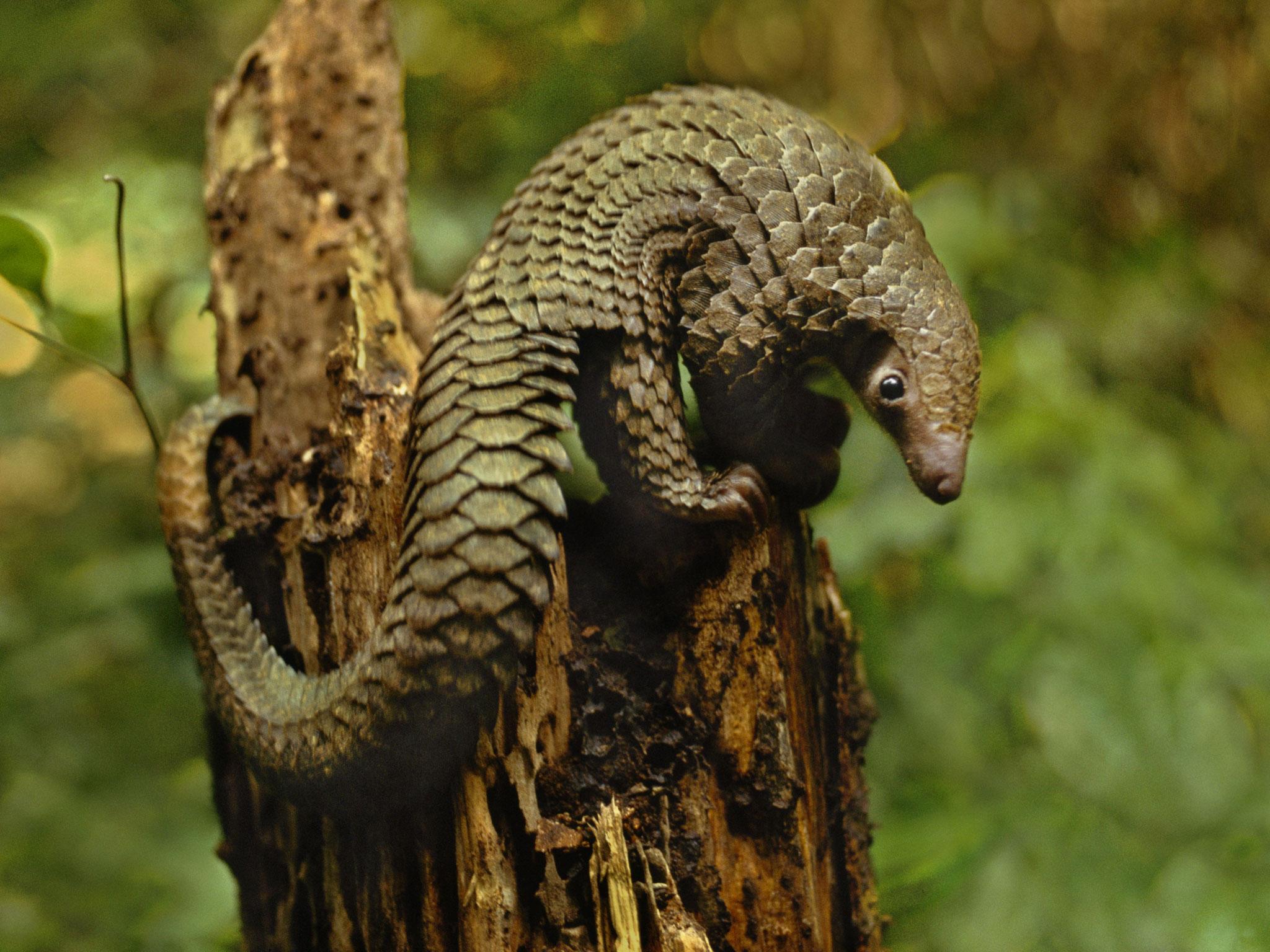Chinese customs officials seize 3 tonnes of endangered pangolin scales in 'biggest ever' bust
Adorable mammal is under serious threat

Your support helps us to tell the story
From reproductive rights to climate change to Big Tech, The Independent is on the ground when the story is developing. Whether it's investigating the financials of Elon Musk's pro-Trump PAC or producing our latest documentary, 'The A Word', which shines a light on the American women fighting for reproductive rights, we know how important it is to parse out the facts from the messaging.
At such a critical moment in US history, we need reporters on the ground. Your donation allows us to keep sending journalists to speak to both sides of the story.
The Independent is trusted by Americans across the entire political spectrum. And unlike many other quality news outlets, we choose not to lock Americans out of our reporting and analysis with paywalls. We believe quality journalism should be available to everyone, paid for by those who can afford it.
Your support makes all the difference.Chinese customs officials have seized almost three tonnes of pangolin scales being smuggled through Shanghai.
Three people were arrested after the huge 2.9-tonne shipment, said to be the largest quantity ever impounded, was uncovered in a container that was supposed to be carrying timber from Africa.
Xinhua news agency reported that such a quantity of scales meant that between 5,000 and 7,500 of the critically endangered animals had been killed by traffickers.
The enigmatic and highly intelligent pangolin is considered a delicacy in parts of Asia. Its scales are also used in traditional Chinese medicine because practitioners believe they can treat conditions like inward-growing eyelashes, boils and poor circulation.
But experts have denounced the "intolerable" trade for its "pharmaceutical pointlessness".
Also known as scaly anteaters because of their appearance, long tongues and favourite snacks, pangolins are mammals that inhabit tropical forests, dry woodlands and the savannah.
There are eight species still in existence found in India, China, south-east Asia and parts of Africa.
Pangolins are so unique they have a mammal order to themselves, Pholidota. Despite frequent comparisons to anteaters and armadillos, they have nothing taxonomically in common.
About the size of a small cat, they are completely covered with scales made of keratin, also found in human nails.
Pangolin are the world's most-trafficked animals. People who catch, kill, buy or sell them can face more than 10 years in prison plus fines, Xinhua said.
Demand has seen prices rocket from £8.50 for a kilogramme of scales in the 1990s to more than £360 today.
The increasingly lucrative trade is driving poachers to capitalise by snaring the creatures in forests and sometimes feeding them gravel to increase their weight and value.
The Smithsonian Institution magazine named believers in traditional Chinese medicine as the driving force behind trade in rhino horn, tiger bone, turtles, shark fins and bear bile.
Join our commenting forum
Join thought-provoking conversations, follow other Independent readers and see their replies
Comments